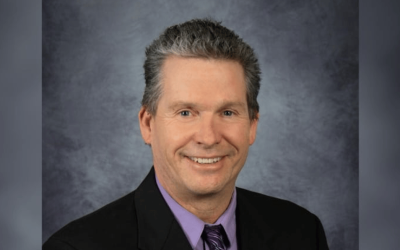The routine practice of promoting poorly performing students to the next grade instead of failing them when necessary is teaching kids that success comes without effort, says a new study.
Because the Canadian education system is focused on self-esteem at the expense of academic achievement, we’re being saddled with more “functionally illiterate and innumerate” high school grads, according to the hard-hitting report.
“Clearly social promotion (failing students) undermines the meaning and value of a high school diploma by sending the message that mastering academic standards is not required for high school graduation,” says the paper by the Frontier Centre for Public Policy.
Instead of implementing strict no-fail policies, school boards should do what’s best for students on a case-by-case basis, says co-author Michael Zwaagstra, a Manitoba high school teacher.
The case for passing underperforming students onto the next grade is exaggerated, he argues. While it’s true that students who are held back have much higher dropout rates than their peers, there’s no clear causal link, says Zwaagstra.
Students who’ve been failed have the weakest academic records so they’d naturally be most likely to drop out of school, he explains.
Not prepared
And promoting struggling students does little for their self-esteem because they’re not prepared for the next grade level, says Zwaagstra.
These are not new observations. When I was in university three decades ago, my professors were shocked at the number of students who couldn’t string a sentence together. Somehow, they graduated from high school and ended up needing serious hand-holding in university.
The concept of social promotion and “the watering down of standards” has only gotten worse, Zwaagstra said yesterday in an interview. Promoting undeserving students is widespread because school boards put more emphasis on personal development and good citizenship than basic skills like literacy and numeracy, he added.
He believes we’re being too easy on students and there’s undoubtedly a lot of parents who agree with him.
He was on a Saskatchewan radio talk show yesterday and some of the listeners who called in were parents. “Every single parent who phoned in … supported my position,” he said.
One parent told of the battle she had with a school because she wanted her struggling son kept in Grade 2 for another year. The school wanted to pass him.
“They actually had to move him to a different school in order to make that happen and he’s doing much better now at the age of 12.”
Zwaagstra is also a fan of standardized exams because they objectively measure basic skills. But in our feel-good society, where these kinds of tests are considered too emotionally taxing on little Johnny, many educators oppose them.
‘Political tools’
Ontario elementary school teachers, for instance, have absurdly slammed them as “political tools” that don’t measure other aspects of education. Well, they’re not supposed to.
Zwaagstra isn’t saying all underperforming pupils should be failed. He just objects that our namby-pamby education system is so reluctant to fail anyone.
The key, says University of Toronto education professor Barrie Bennett, is having the right after-school intervention programs for struggling kids. “If we don’t teach differently,” he says, “the kids aren’t going to learn.”
—————-
Also published in Winnipeg Sun, Ottawa Sun, Toronto Sun, Edmonton Sun, Calgary Sun,
Northumberland Today.com, Owen Sound Sun Times, Pembroke Daily Oberver, Sarnia Observer,
Sault Star, St. Catherines Standard, Sudbury Star, Timmins Daily Press, Welland Tribune, Barrie Examiner, Belleville Intelligencer, Brantford Expositor, Chatham Daily News, Cornwall Standard-Freeholder, Kingston Whig Standard, Niagara Falls Review, North Bay Nugget, Woodstock Sentinel-Review, Simcoe Reformer, London Free Press


